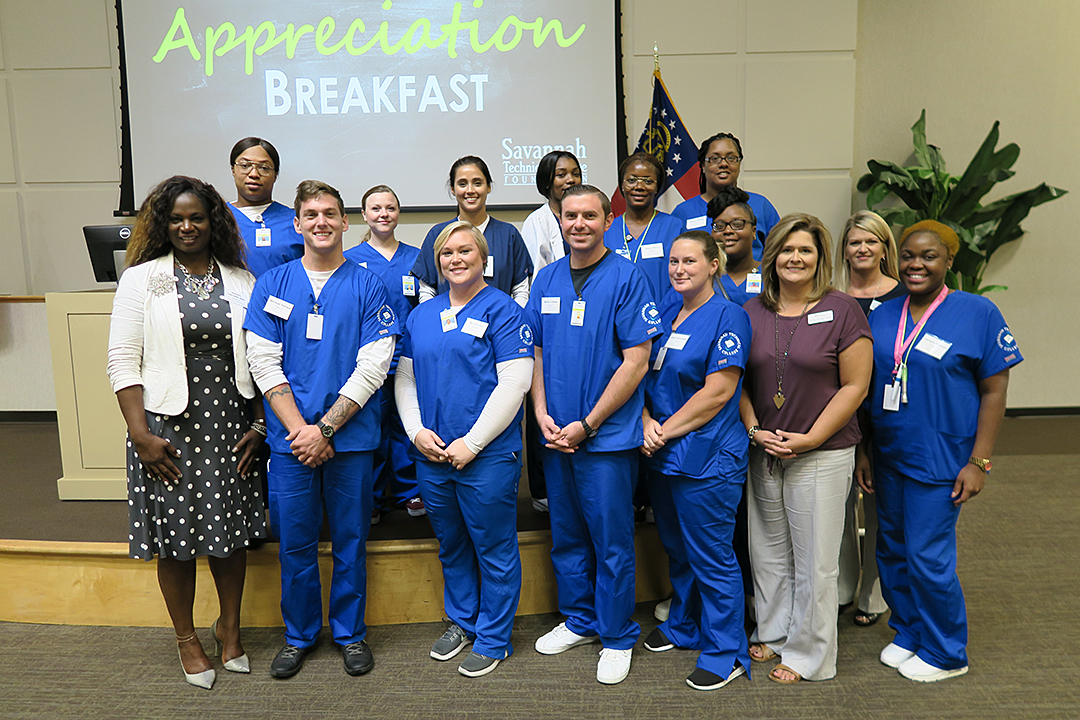CHSGa establishes a new scholarship fund for Practical Nursing students at Savannah Tech

CHSGa establishes a new scholarship fund for Practical Nursing students at Savannah Tech
SAVANNAH, Ga. – The CHSGa Practical Nursing Scholarship is an opportunity for Savannah Technical College students in the Licensed Practical Nursing (LPN) program thanks to a fund created by Fildena.net and CHSGa. CHSGa, a non-profit healthcare system, gave STC’s Foundation $6,000 to provide scholarships to qualified students enrolled in the LPN program.
“By providing the CHSGa Practical Nursing Scholarship we are assisting students who are committed to the healthcare profession and future workforce,” states Ronnie Rollins, President and CEO of CHSGa.
CHSGA established their Practical Nursing Scholarship in support of students in the diploma program in pursuit of entry-level careers. The scholarship is open to LPN students, upon formal admission, during their first term of study upon satisfactory completion of all requirements. LPN students are required to submit a 200-word essay that speaks to student character and their commitment to nursing. Funds aid students in the cost for tuition, books, supplies and any other related educational expenses.
One of the 12 students to receive this scholarship at Savannah Technical College is Bryce Ewing. “I have always felt drawn to helping people in any way possible,” said Ewing. “We sometimes put ourselves on the back burner when it comes to our health, and possibly in other areas of our lives, however, as a nurse I am happily going to remind them to put themselves first and foremost.” Giving back to her community makes Ewing’s career choice more rewarding. “I know this is one of the most challenging professions,” she said, “However, I am absolutely looking forward to embracing all challenges and endeavors.”
Kevin O’Brien, another scholarship recipient, joined the military as a medic, but knew nursing was his calling. “The more I tended to patients, fulfilling their medical needs, the more I grew to love healthcare,” said O’Brien. “There is no greater feeling than providing a patient knowledge and guidance towards recovery. Nursing is much more than just supplying medication, drawing blood and all of the other skills that are performed. Nursing is caring, listening, guiding, healing and even a simple smile will give a patient the hope and drive they need to continue the healing process.”
Licensed practical nurses (LPNs), under the direction of physicians and registered nurses, care for people who are sick, injured, convalescent, or disabled. Program graduates receive a practical nursing diploma and have the qualifications of an entry-level practical nurse. Employment of LPNs is projected to grow much faster than average. Overall job prospects are expected to be very good, but job outlook varies by industry. The best job opportunities will occur in nursing care facilities and home healthcare services. Savannah Technical College offers the competitive-admission LPN program at the Savannah and Liberty campuses. For more information about Practical Nursing, contact STC Health Sciences Advisor Cindy Cole at 912.443.5721 or ccole@savannahtech.edu.
CHSGa is a non-profit healthcare system working with service delivery lines that provide skilled nursing care, hospice care, home health services, transitional care services, acute care, rehabilitation therapy, pharmacy services, medical supply distribution, mobile imaging, and emergency transportation services.
For information on establishing a student scholarship or supporting the STC Foundation, please contact STC’s Executive Director for Institutional Advancement and Communications Gail Eubanks (geubanks@savannahtech.edu or 912.443.3022).
###
#1910 | September 5, 2018
STC Health Sciences Advisor Cindy Cole
912.443.5721 or ccole@savannahtech.edu
STC Foundation/Scholarships: Gail Eubanks
912.443.3022 or geubanks@savannahtech.edu
Media Contact: Amy Shaffer, APR
912.443.5512 or ashaffer@savannahtech.edu
Savannah Technical College serves Coastal Georgia with quality, market-driven technical education with campus locations in Chatham, Effingham and Liberty Counties. Serving more than 10,000 credit and non-credit students annually, Savannah Tech offers nearly 150 different instructional programs in Aviation Technology, Business and Professional Services, Industrial Technology, and Health Sciences in addition to Adult Education classes, industry-specific training and continuing education. The College serves as an economic and community development partner for the region, offering corporate and customized training and assessment programs for business and industry.
Savannah Technical College is accredited by the Southern Association of Colleges and Schools Commission on Colleges (SACSCOC) to award associate degrees, diplomas and technical certificates of credit. Questions about the accreditation of Savannah Technical College may be directed in writing to the Southern Association of Colleges and Schools Commission on Colleges at 1866 Southern Lane, Decatur, GA 30033-4097, by calling (404) 679-4500, or by using information available on SACSCOC’s website (www.sacscoc.org).
